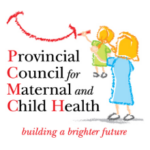
March 2023 | Issue 2
Established by PCMCH in 2021, the Regional Networks Operational Forum (RNOF) is a provincial community of practice that supports local planning, coordination among healthcare providers, and implementation of provincial standards and guidelines in Ontario. Comprised of the six perinatal-newborn-child health regional networks, Ontario Health regions, PCMCH and BORN, its aim is to achieve evidence-based, high-quality, equitable and accessible perinatal, newborn and child healthcare across Ontario.
Data collected by the Better Outcomes Registry Network (BORN) Ontario is essential for the achievement of RNOF’s aim. The excerpt below from BORN Ontario’s recent annual report, reproduced with permission, highlights how a series of Regional Network reports they have developed contribute to the work of regional networks and RNOF.
How is BORN Data Impacting Regional Networks Supporting Prenatal Care Across Ontario?
Community of Practice Helps Bridge the Gap Between Policy and Practice
Brittany Groom is a Program Manager at the Provincial Council for Maternal and Child Health (PCMCH). Part of her work includes supporting a relatively new provincial community of practice called the Regional Networks Operational Forum (RNOF).
Established in May 2021, the forum assists with local planning, coordination of healthcare providers and implementation of provincial standards and guidelines.
Brittany is excited about the forum’s ability to bridge the gap between policy and practice: “At PCMCH, we have evidence-based guidelines, reports and recommendations on a wide range of topics related to reproductive and child health. Through the implementation support of RNOF members across Ontario, we can get these out to as many people as we can to drive meaningful and sustainable change”.
Data Supports Regional Initiatives to Improve Reproductive, Newborn, and Child Health
To support their work, the RNOF, as well as the individual maternal, newborn and child health regional networks, need high-quality data. Thanks to funding from the Ministry of Health, BORN recently developed a set of regional network reports that include 21 maternal health indicators, 13 infant health indicators and 25 indicators specific to midwifery (billable courses of care).
These indicators help answer region-specific questions such as:
- What is the average hospital length of stay for an individual giving birth for the first time?
- How many individuals were induced? Of those, how many were induced with oxytocin?
- What percentage of babies were admitted to the NICU? Of those, how many were <37 weeks gestation?
- How many babies were born ‘out of scope’? (i.e., born out of the recommended level of care hospitals for their gestational age).
A variety of comparators are also included in the reports. So, a Regional Network, for example, could compare the number of births in their region with births in any of the other five regions or to the province as a whole. The same applies to any of the other indicators included in the report.
Brittany calls the reports ‘hugely impactful’ and sees the potential for monitoring health outcomes, evaluating quality improvement initiatives, and shaping health system transformation.
She also believes access to standardized data from all regional networks will increase opportunities for alignment and coordination on shared provincial priorities.
Dr. Jon Barrett, a specialist in Maternal Fetal Medicine and RNOF representative for the Southern Ontario Maternal Child Health Network, says the reports will be useful for prioritizing network efforts: “Without BORN data, we cannot know what we need to change, and, without comparative data, we cannot know when we have improved and where our efforts are best devoted.”
